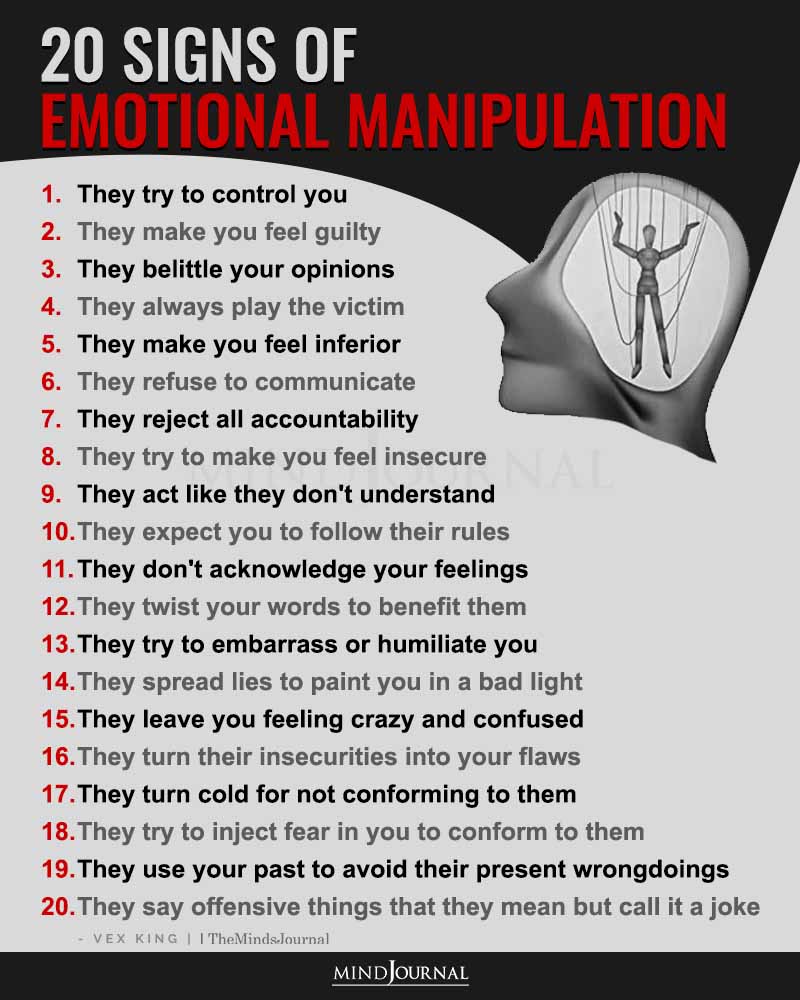Manipulative apologies are tricky; they sound like remorse but actually aim to shift blame, guilt-trip, or control the situation. Learning how to respond to a manipulative apology is crucial to maintaining emotional balance and protecting your well-being.
Always remember that apology without change is manipulative, and the quicker you realize that, the better it will be for you and emotional well-being.
Let’s dive into what is a manipulative apology, how does a narcissist apologize and how to respond to a manipulative apology, so that you can handle these situations with confidence, and not get caught in an emotional trap.
Related: Manipulation 101: 15 Common Signs Of Manipulative People And How To Identify Them
What is a Manipulative Apology?
A manipulative apology isn’t a genuine expression of regret. Instead, it’s a way for the apologizer to dodge responsibility, shift the blame, or get you to overlook their behavior without real accountability.
It often includes phrases like, “I’m sorry if you feel that way,” or “I’m sorry you misunderstood.”
These types of apologies may seem like an attempt to make things right, but they ultimately leave you feeling more confused, guilty, or pressured to forgive when the person hasn’t truly owned up to their actions.

Okay, now let us take a look at some manipulative apology examples.
How Does A Narcissist Apologize?
1) The “If” Apology
“I’m sorry if I hurt you.”
This apology sounds like they’re taking accountability, but adding “if” implies doubt, so basically they are suggesting that you think you are hurt, and they are not actually responsible for it.
2) The Blame-Shifting Apology
“I’m sorry, but you made me do it.”
This is one of the major, major manipulative apology examples. When they follow up their apology with blame, they place the responsibility on you, making it seem as if their behavior was simply a reaction to your actions.
3) The Minimizing Apology
“I said I was sorry. Can we move on already?”
This type of apology aims to dismiss the issue and your feelings without acknowledging the full impact of their actions, as though the problem is trivial and shouldn’t be dwelled on.
4) The Conditional Apology
“I’ll apologize, but only if you stop being so sensitive.”
How does a narcissist apologize? Sometimes, they make their apology conditional, as though your reaction to their behavior is the real problem, not the behavior itself.
5) The Victim Apology
“I’m sorry for being such a terrible person.”
Again, this is one of those problematic and manipulative apology examples which is meant to make you feel guilty for even bringing it up, painting themselves as the “poor misunderstood person” rather than addressing the specific issue.
6) The Guilt-Tripping Apology
“I’m sorry, but after all I’ve done for you, I didn’t expect you’d be so hard on me.”
This apology tries to guilt-trip you by highlighting their “good deeds,” manipulating you into feeling bad for holding them accountable.
Related: Romantic Manipulation: 10 Subtle Phrases To Watch Out For
How to Respond to a Manipulative Apology: 7 Strategies to Turn the Tables
1. Always Ask for Clarification
If the apology sounds off, politely ask the person to clarify what exactly they’re sorry for. This can catch manipulative people off guard, as their apology wasn’t intended to take responsibility in the first place.
By asking for specifics, like “Could you explain what part of the situation you feel responsible for?”, you shift the focus back on them.
If they sidestep, repeat your question calmly. This shows that you’re not just accepting an apology at face value, and it’s a subtle way to hold them accountable.
2. Stay Calm and Don’t Overreact
Manipulators often thrive on emotional reactions; they want you to feel hurt, angry, or guilty. So, how to respond to a manipulative apology? By staying calm and composed, you deny them the satisfaction of knowing their tactics are working.
Take a deep breath and respond in a neutral tone. Try saying something like, “I need some time to process this.” This tactic not only helps you maintain control but also signals that their attempt to get an emotional reaction isn’t working.
Calmness in these situations can be your strongest tool.
3. Express How You Feel Clearly
Instead of getting tangled up in their words, try to focus on expressing how their actions made you feel. Statements like “I felt disregarded when you did…” keeps the conversation on your feelings rather than their twisted version of events.
Using “I” statements lets you own your feelings without sounding accusatory, which helps prevent further manipulation.
This also serves as a mirror for them to see the impact of their behavior, which they may otherwise try to downplay or ignore, and this is one of the best things you can do if you are wondering how to respond to a manipulative apology.
4. Set Boundaries on Repeated Behavior
If you’ve noticed a pattern of manipulative apologies, it might be time to set clear boundaries. Let them know that unless they can offer a genuine apology with changed behavior, you won’t accept any more apologies on this matter.
You could say something like, “I’m open to forgiving, but only when I see a real change in behavior.” This approach protects your mental space and reinforces that you won’t tolerate repeated manipulation.

5. Resist the Urge to Defend Yourself
Manipulative apologies often provoke defensiveness. But, responding defensively can easily spiral into a blame game, exactly what the manipulator wants. Because remember that apology without change is manipulation.
Keep your responses short and centered on the apology itself. Saying, “I appreciate an apology that feels sincere” can communicate your stance without falling into their trap.
By resisting the need to explain or defend yourself, you maintain the upper hand and avoid getting sidetracked by their guilt-tripping tactics.
Related: 4 Techniques To Control and Disarm a Manipulator
6. Don’t Rush to Forgive
A manipulative apology often comes with pressure to immediately forgive and move on. But genuine forgiveness should come on your terms, not theirs. Take time to assess whether the apology is real or a way to dodge accountability.
A simple “I need some time to think about this” creates space for you to reflect without feeling forced to forgive.
This delay also helps you gauge their reaction—if they’re genuinely sorry, they’ll respect your need for time rather than pushing for instant forgiveness.
7. Hold Them Accountable for Future Actions
Actions speak louder than words, especially when dealing with manipulative people. Make it clear that the apology alone isn’t enough; you need to see real change.
You might say, “I’ll feel more at ease if I see consistent effort to address what we talked about.” This drives home the idea that words mean little without matching actions, and that an apology with change won’t work anymore for you.
It’s a respectful yet firm way to communicate that you won’t just accept any apology but will observe how they behave in the future very closely.
Bottomline
Responding to a manipulative apology can be challenging, but these tips and tricks can help you maintain your mental and emotional well-being.
By understanding the difference between a real and manipulative apology, you can take control of the conversation and ensure that they are not able to use your emotions against you.
So, next time you face a half-hearted or guilt-loaded apology, remember you have tools to protect yourself and respond in ways that respect your boundaries and self-worth.










Leave a Reply